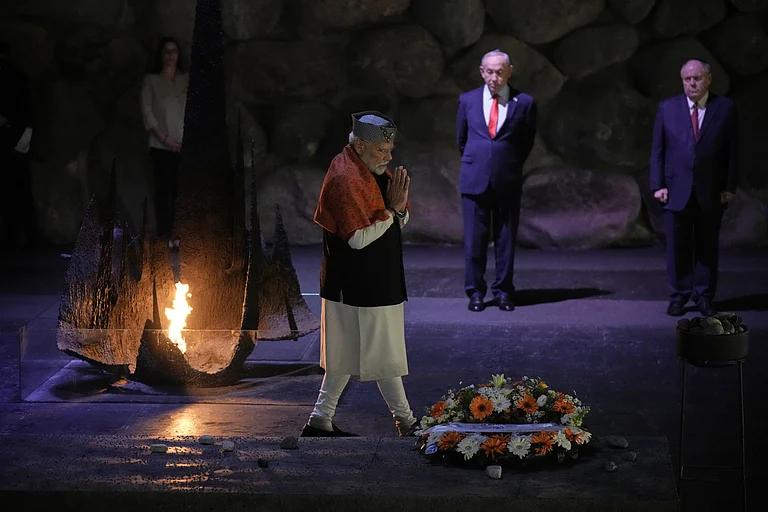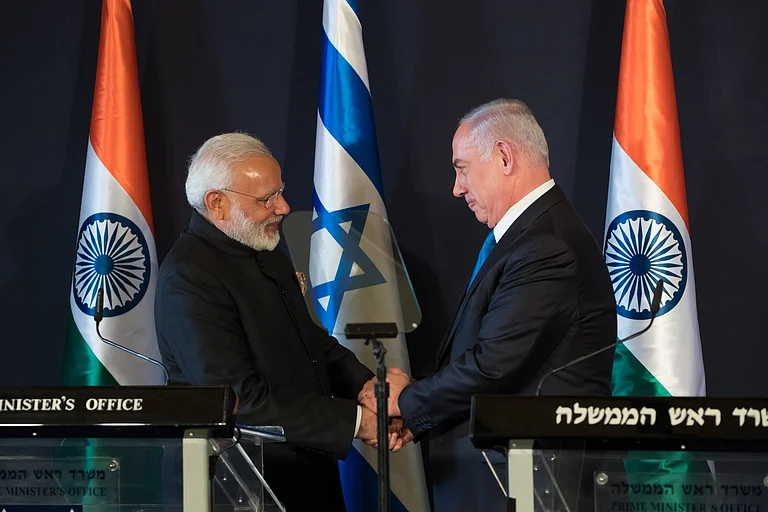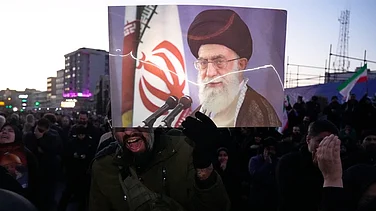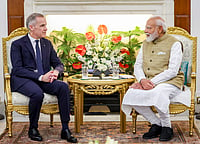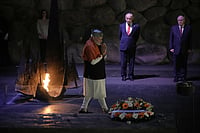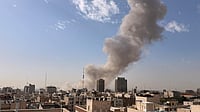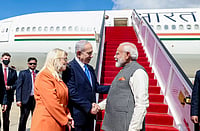
Summary of this article
The 20-point Gaza peace deal was announced first by US President Donald Trump.
The peace deal lays out an initial framework for a ceasefire, the exchange of prisoners, and the gradual withdrawal of Israeli forces.
Hamas has agreed to a limited deal in which prisoners are exchanged.
The scenes of jubilation across Gaza at the news that Israel and Hamas have agreed to a peace deal are an indication of how desperate the people of the enclave are for some reprieve from two years of endless bombing and bloodshed. US President Donald Trump was the first to announce the deal on his social media platform, Truth Social. The agreement reached on the first phase of the US-brokered peace deal marks a tentative step toward ending Israel’s war in Gaza.
Steve Witkoff, the US Middle East envoy, and Jared Kushner, the President’s son-in-law, travelled to the Egyptian seaside resort of Sharm El-Sheikh, where indirect talks between Israel and Hamas were taking place. Qatar’s Prime Minister joined the team, together with Egyptian officials who were hosting the talks.
The peace deal lays out an initial framework for a ceasefire, the exchange of prisoners, and the gradual withdrawal of Israeli forces — a cautious beginning to what the world hopes will evolve into a comprehensive roadmap for lasting peace in the region. However, the deal welcomed by the whole world is iffy in its details and needs to be fleshed out and codified.
President Trump, with an eye on the Nobel Peace Prize to be announced on Friday, is excited and has said he may travel to the region on the weekend. Prime Minister Benjamin Netanyahu, who will present the deal to the cabinet, has also said that he would invite the US leader to address the Knesset.
The solid part is the release and exchange of prisoners within 72 hours of the plan coming through. The remaining Israeli hostages , around twenty to twenty-five that are still alive, as well as a large number of Palestinians, will return to their homes. The remains of the dead hostages will also be handed back to the families for burial and a proper closure. The good news is that supplies will also flow into the besieged enclave, where everything from medicines and food to water and all essential items is not available, and people are facing near-starvation conditions.
Trump has also announced that the IDF will relocate from its current positions and withdraw to an agreed-upon position. What that could be is not clear yet.
“So far, the only thing concrete is the release of hostages, the rest is up in the air and has to be concretised,’’ says Talmiz Ahmad, a former ambassador to Saudi Arabia and an expert on the region.
“Much will depend on whether Trump wins the Nobel Peace Prize, which has become an obsession with him,’’ Ahmad adds. “If he does so, there will be an American commitment to implement the deal.’’
Some of the sticking points in the deal are: a) whether Hamas will disarm, b) whether Israeli forces will withdraw, c) whether the international stabilisation force can oversee security, and d) who will ultimately govern Gaza after Hamas.
“The freeing of hostages is a powerful catalyst for stabilising the situation, but it is not a guarantee of peace,’’ says Anil Wadhwa, retired Indian diplomat, who also served as ambassador in West Asia.
“Its survival will hinge on follow-through, international backing, credible enforcement , and the willingness of both sides to endure a difficult and incremental transition from hostilities to relative peace,’’ he adds.
”Given the fact that Netanyahu's political survival and support from the right are linked to denying a two-state solution at any cost to the Palestinians, there could be a situation of renewed hostilities on the part of the IDF . The role of the United States in enforcing the peace and acting as a restraint on Israel will be vital,’’ Wadhwa says.
It is a fact that without US pressure, Netanyahu would not have come around to ending the war. The memory of what happened in January, with a three-stage peace agreement that allowed for the return of Israeli hostages was announced with much fanfare, is still fresh.
Once the majority of hostages were released, Israel simply walked out of the agreement. No questions were asked by the US. The world allowed Benjamin Netanyahu to do what he pleased. For a durable peace, the US will have to be involved at every step. Much will depend on whether the Trump administration is willing to sustain its current focus on peace. It is also vital that Trump uses his leverage to ensure that Netanyahu keeps his promise. If Trump pulls this off, he surely deserves the Nobel.





